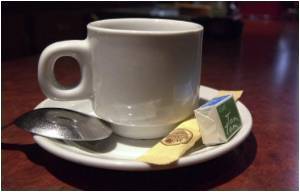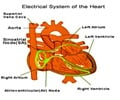Caffeine is among the most common foods that trigger atrial fibrillation (AF), a condition characterized by irregular heartbeat.

It's therefore crucial that it is properly managed and treated - yet studies show there is an average delay of 2.6 years between symptoms starting and a person being diagnosed.
Diagnosed patients are treated with cardiac ablation - an operation to burn away the nerves causing the faulty signals that trigger irregular beats.
They are also prescribed flecainide, a drug that regulates heart arrhythmias.
As many as 50 per cent of people with AF say caffeine exacerbate their symptoms, but surprisingly, there's little evidence to back up this perceived link, said Jo Jerrome, deputy chief executive of the Atrial Fibrillation Association.
"We do see people who say that by stopping caffeine they've reduced their AF symptoms. But if you do strict trials of caffeine against non-caffeine it is difficult to show a difference in episodes," added Clifford Garratt, professor of cardiology at Manchester University and Manchester Royal Infirmary.
Advertisement
Caffeine is the most widely used psychoactive - or brain altering - drug in the world, with billions of people relying on it for a quick pick-me-up.
Advertisement
On the other hand research from the Women's Health Study, a major study that has been following over 33,000 women since 1993, found that 'elevated caffeine consumption was not associated with an increased risk of incident atrial fibrillation'.
Again research recently published in the New England Journal of Medicine, which examined 229,119 men and 173,141 women, found 'coffee consumption was inversely associated with total and cause-specific mortality' - coffee drinkers were less likely to die early than non-coffee drinkers.
Source-ANI














